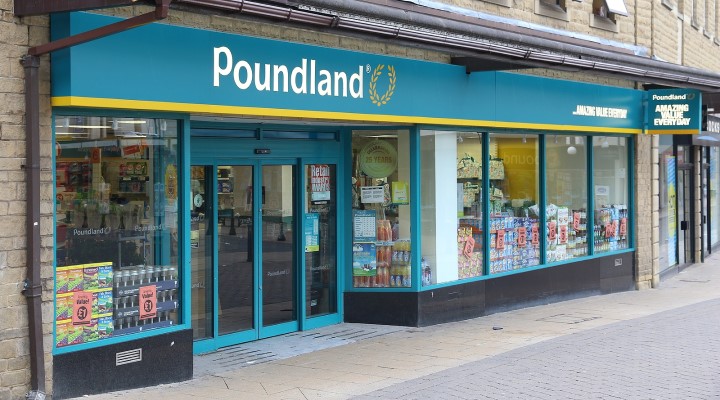Discount stores are booming in post-Covid Europe as price-sensitive consumers seek out bargains amid inflation and the devastating impacts of the pandemic. UK-based Pepco Group, the owner of discount chains Poundland and Dealz, is planning a major European expansion which is expected to create about 13,000 new jobs, according to Reuters. In June, Pepco reported first-half underlying earnings of €324 million, up 16.8 per cent, and is targeting more than €1 billion in core earnings withi
within five to seven years.
Pepco Group currently trades from over 3000 stores in 15 territories across Europe, meeting the needs of 50 million shoppers each month. Much of its focus is on what it calls “attractive discount markets” such as the UK, the Republic of Ireland and Spain.
Unsurprisingly, like many discount retailers, Pepco has a no-bells-and-whistles approach and has been reluctant to embrace online shopping, favouring bricks-and-mortar stores which have proven more cost effective given the average basket size is €7-8 euros. However Reuters reports that the group is conducting a small online trial in central England to gauge customer interest.
Global phenomenon
The increasing popularity of bargain-centred stores is, of course, not confined to Europe. It’s very much a global phenomenon.
Japanese discounter franchise Daiso is proving popular globally. It has a presence in around 25 countries worldwide including the US, Australia, New Zealand, Singapore and Malaysia.
The 100-yen stores range over 100,000 products, including household, kitchenware and cleaning products, many of which are imported from China, Korea, and Japan.
The retailer also supplements stores with an e-commerce offer. It launched its Singapore website in January of this year, listing products across 25 categories including cleaning supplies, daily necessities and personal care, according to The Straits Times.
Meanwhile in the US, discount store chain Dollar General pulled in approximately $33.75 billion in sales in 2020, an increase of nearly 22 per cent in comparison to a year earlier.
While traditionally focused on shelf-stable and long-life goods, the retailer is currently trialling fresh produce and plans to expand this offering to up to 10,000 stores, according to Forbes. It also recently added a private label skincare line to its Believe Beauty brand with 11 new items, all at $5 or less.
The psychology behind bargain hunting
Jana Bowden, an expert in consumer psychology and consumer engagement at Macquarie University Business School, credits the popularity of discounters to the dopamine-fuelled ‘shoppers high’ that results from a bargain buy.
“The sight of red tags, sales signs, ‘bargain bins’, clearance items and masses of cheaply priced stock gets the pulse up and gives us sweaty palms at the thought of missing out,” Bowden told Inside Retail.
Bargain shopping is driven by two behaviours, according to Bowden: frugality and treats.
“All consumers love a good bargain. Psychologically consumers like to feel they are thrifty, that they save money, that they are good at tracking down deals and value,” she said.
“On the other hand, we all love a treat too and with all the extra savings banked that we would normally spend on international travel, there’s an underlying urge to splurge. It’s about hunting down the deal and walking out with the ‘prize’. When it comes down to it, dollar shopping is much more about emotional buying than rational buying.”
As a result, some consumers can get wrapped up in the notion of the ‘dollar deal’ and can overspend as a result. Often consumers can be influenced by the “haphazard design” of the dollar store.
“The [format] traps consumers into longer browse times as they navigate the aisles and random assortments on a deal hunting expedition,” Bowden said.
“On top of that, it’s not often easy for consumers to rationally price compare – dollar store products are often not branded, or they are packaged in different quantities that make it hard for consumers to compare. That confusion shuts down consumers’ ability to compare prices and impairs rational decision making.”
Primed for growth
According to a report from McKinsey last year, 60 per cent of consumers are feeling ‘very’ or ‘extremely’ nervous about the economy and 30 per cent of the population are feeling ‘optimistic but cautious’. Meanwhile, about a third or respondents indicated they will be looking to buy more products on promotion compared to pre-Covid and more than 20 per cent is shifting to shopping in discount channels.
Bowden believes price-point retailers are perfectly positioned for the Covid-induced shift in consumer preferences, saying they thrive during economic uncertainty.
“US data shows that while browse time in dollar stores is down due to transmission fears generally, basket size at checkout has grown substantially,” she said.
“On top of that in the US, the sector is set to generate a revenue of 94.2 billion U.S. dollars this year, up from 92.04 billion recorded a year earlier.”
Bowden believes there’s no sign of dollar stores slowing down post-pandemic.
“Consumers are addicted to the thrill of the chase when it comes to deal shopping. The only potential barrier to dollar store sales to date has been the fact that many don’t trade online but even that is changing and many are contemplating moving online.”

